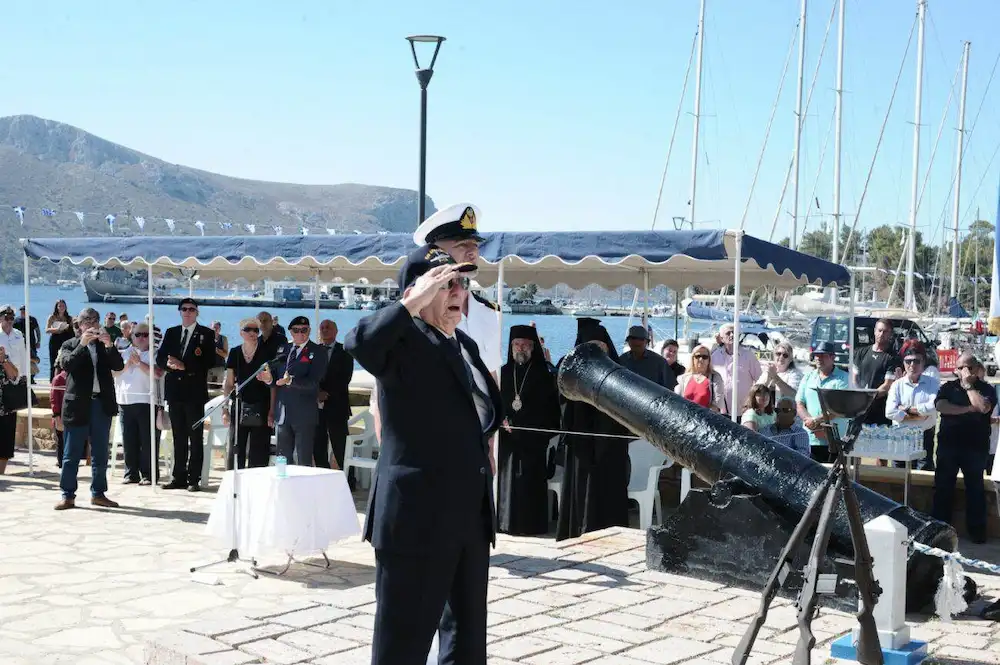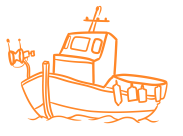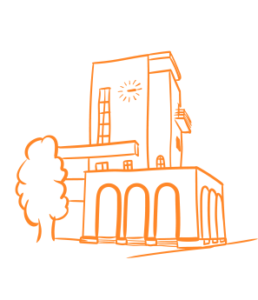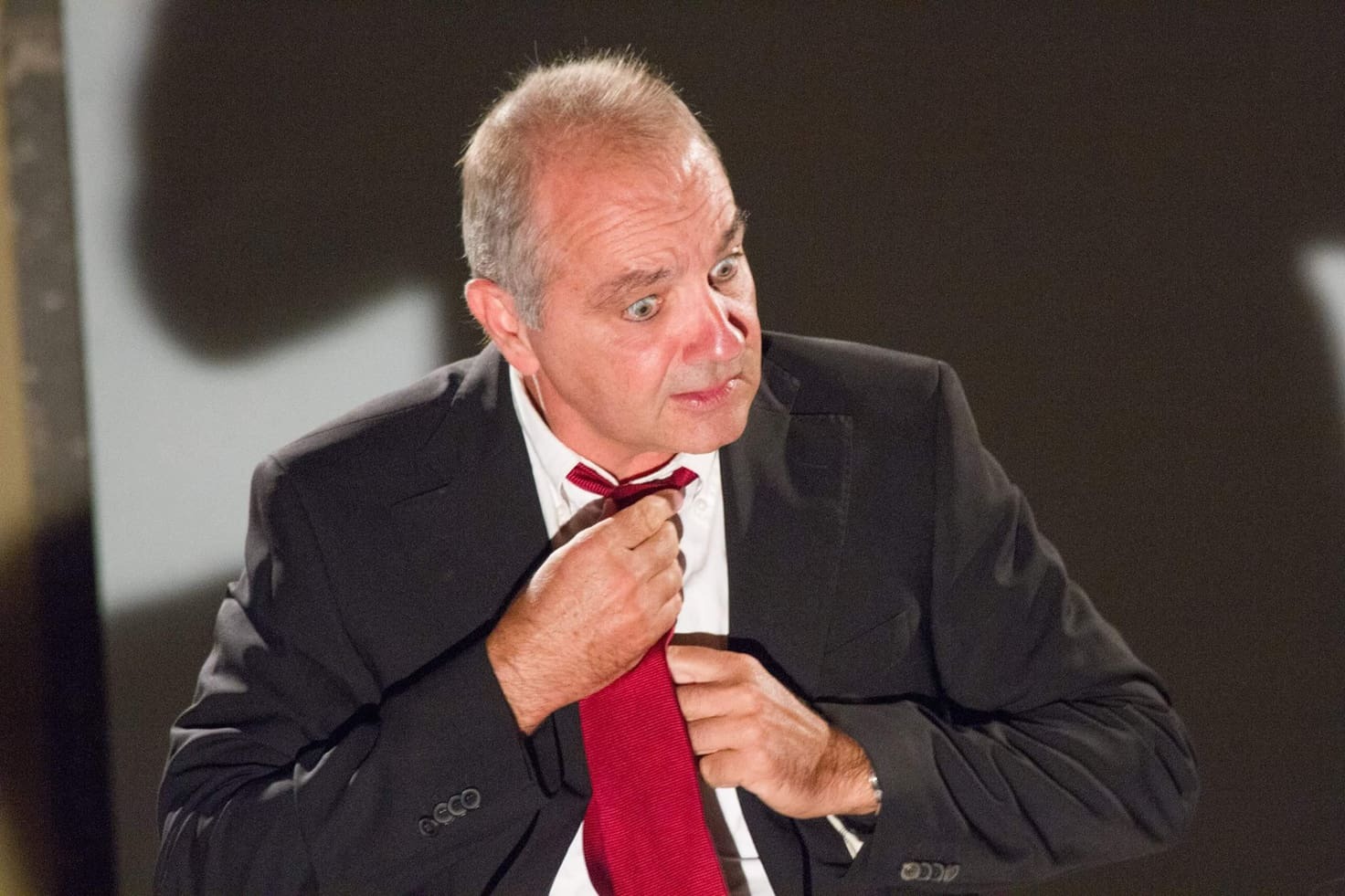On September 26, 1943, the Greek destroyer “Vasilissa Olga” met a tragic fate in the Aegean Sea. Under heavy German air attack, the ship was struck by multiple bombs, resulting in a devastating explosion that claimed the lives of most of its crew. Yet, amidst the chaos and destruction, a handful of brave sailors survived, their stories of courage, resilience, and the enduring spirit of the Greek people echoing through the years.
This collection of firsthand accounts offers a poignant glimpse into the harrowing experiences of those who witnessed firsthand the sinking of the “Vasilissa Olga.” Through the words of survivors like Dimitrios Matalas, Emmanouil Gourgouris, and Ioannis Varelas, we are transported back to that fateful day, learning about the fear, the suffering, and the unwavering determination that allowed them to emerge from the depths of tragedy.
Dimitrios Matalas (Flag Bearer)
“On September 19, 1943, three days after the Italian fleet surrendered at Alexandria, we embarked on our first mission to the Dodecanese. There were four destroyers, three British and the ‘Vasilissa Olga’.
After leaving the Aegean, we went to Haifa. In Haifa, we loaded troops and went to Leros for the first time. It was the first time they had seen the Greek flag in Leros.
After Leros, we returned to Alexandria and there, unexpectedly, we were ordered to leave… We received the order late at night, that we would leave the next morning with the Intrepid, for the Aegean. And we went straight to Leros, where we arrived at 7 am on September 26. We moored alongside the Intrepid… I was on watch on the deck, I was the youngest, so they put me on watch… The others had gone to sleep and some were sitting in the mess, below, listening to the service, it was Sunday, the service from the Athens Cathedral, on the radio…
At 9:58, I saw nine planes emerging from the mountain. Before I could warn them, the first bombs fell, which did not hit us. However, they hit the British ship, the Intrepid, and broke a steam pipe, and there was a furious noise, the steam… And I ran to my position… I was in charge of four Oerlikon anti-aircraft guns, which were between the two funnels… I went to my position, at that moment as I was running, I heard machine gun fire. I learned later that this machine gun fire killed the Captain. The first person to be killed on the ship was the Captain…
In a moment, I felt something lift me into the air. I fell down, lost consciousness for two or three minutes, I was pinned down by iron… When I came to, I saw that I was unharmed..
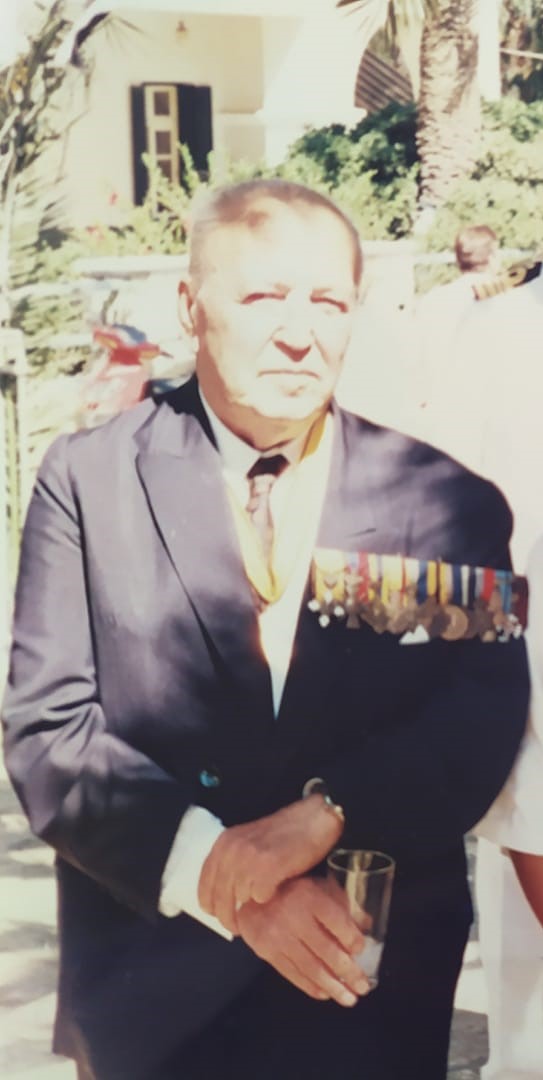
And I saw nothing but decapitated corpses… And all eight men who were at those four anti-aircraft guns were killed. And I, who was in the middle, survived…
Suddenly I hear a “crack”… The ship is cut in two and begins to sink. At that moment a voice was heard, “Abandon ship”… And then there was not a single act that showed panic, fear… And with admirable solidarity, one helped the other and the climax was that as the ship was completely lost, the “crow” of the bow was lost from the surface, a cry was heard, “Long live Olga” and this cry was repeated by the 120 people who were struggling in the water, in the burning sea, “Long live Olga”.
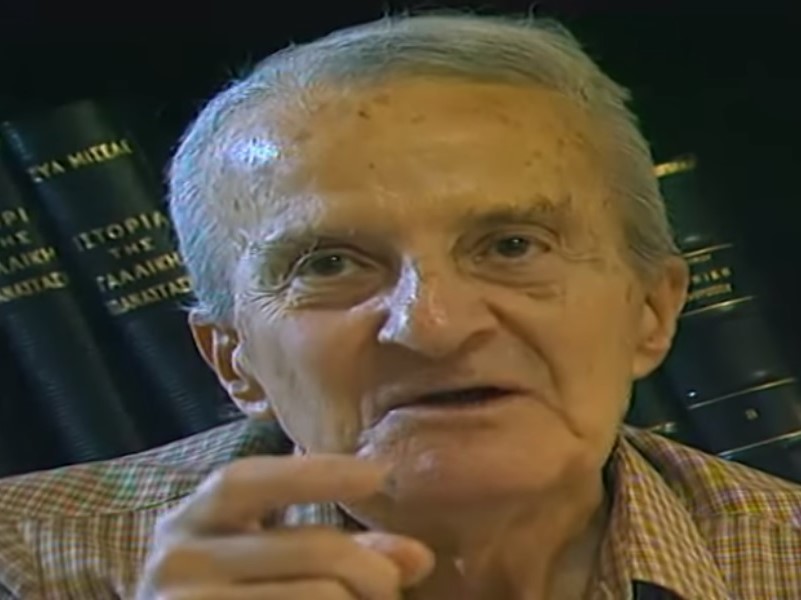
Emmanouil Gourgouris – Assistant Surgeon
“I was asleep on the bridge when a sudden commotion, with machine gun fire, terrible explosions, and the clamor of the alarm, woke me up. I left my cabin and rushed to my battle station, the ship’s infirmary. Running, I saw through a porthole the British destroyer INTREPID burning, a little farther from our ship. A horrible whistling sound from the steam of its engines, escaping and shooting up to a great height, made the moments even more agonizing.
The groans of the wounded could be heard from all parts of the ship and were mixed with the hymns of the service, which the radio, abandoned in the petty officers’ mess, continued to broadcast.
The deck of the “OLGA” had now turned into a real hell. Cries of pain could be heard from all positions, from the bridge, from the camber, from the bow to the stern.
One of the gunners, who was burning like a firework, let out only a few heartbreaking screams and then fell silent forever. Further on, the body of a gunner had been caught between two sheets of metal, overturned by a bomb explosion, making his martyrdom even more unbearable and endless.
It was something terrible that hardly anyone could endure… Holding the dying Lieutenant Commander Batsis, I tried, in this hell of fire and iron, while the ship was sinking, to reach the door of the infirmary. The crew was abandoning the “OLGA” and jumping into the sea. I hugged my dear friend Batsis tighter and opened the door of the small hospital. Then a sudden wave of air and water hit me in the chest and made me lose my balance. Carried away by the wave, I also lost the mortally wounded Lieutenant Commander Batsis. Another wave burst abruptly into the infirmary and pushed me out. I found myself on the deck, which had meanwhile been covered by the sea. I was one of the last on the ship, so I hurried to jump into the sea.
Ioannis Varelas – Engineer
“A bomb salvo – the one that also brought about the fatal end of the ship – hit us on the right smokestack, at the rear of the boiler room. The ship began to list to the right. I was on the right deck and was trying to move towards the bow and also to help those who were injured and could not move.
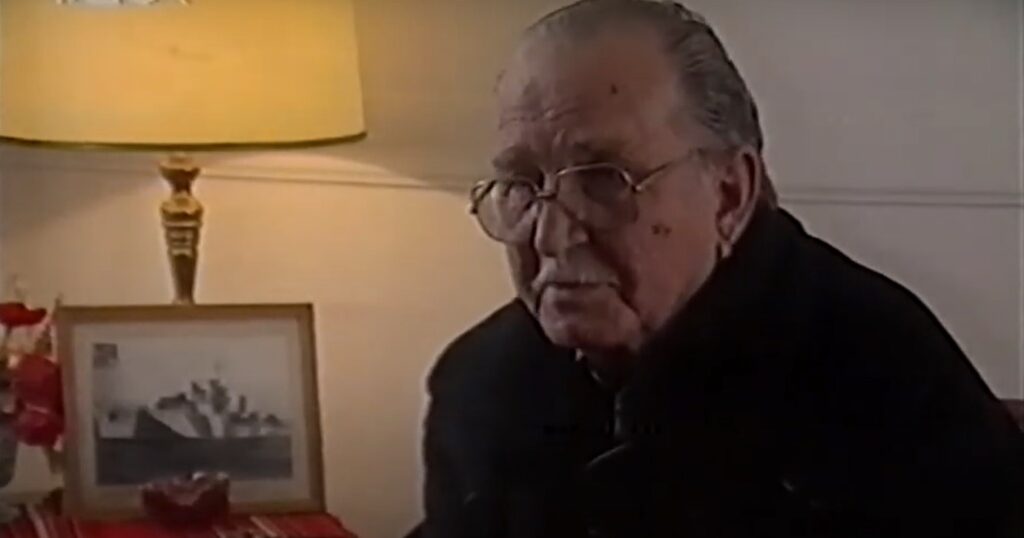
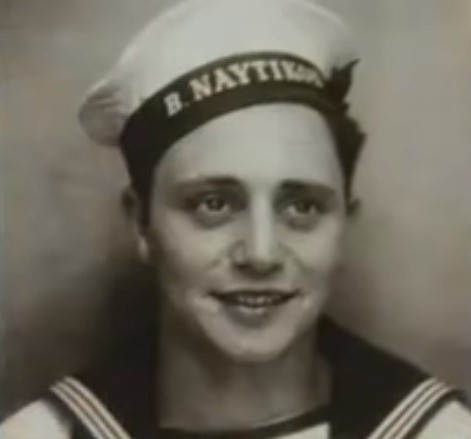
Georgios Kavoukis – Gunner
“Whoever made it to the Lord, saw it all… You step on corpses, you don’t see who was who, severed hands, severed heads, exposed stomachs, you can’t see anything, at that time it’s whoever gets saved… We had been taught that if the ship ever turned right and the sea was close, never to jump from there, because the water vortex would pull you in from the other side… And many were lost that way…
When the bombing of the ship began, I had grabbed the railing of a ladder, which was cut by the bombing and injured my wrist… Imagine being injured and having to jump into the sea… The sea was meanwhile covered in oil from the ship and we had to dive deep to see the surface of the sea where there was light, so we could come up and take a breath and then dive again until we reached the shore…
When I reached the shore and took a breath, I dived back into the sea and saved a colleague of mine who was struggling to get out.”
Nikolaos Chrstidis – Gunner
“The ship was tilting. I went down the stairs to see a colleague and entered the large sailors’ mess. As soon as I passed the door, the ship tilted greatly and I found myself trapped inside the mess without being able to get out from where I entered. Behind the door were supply boxes and with the tilt, they shifted.
With the tilt of the ship, I saw the portholes looking towards the sky. Through the portholes, the rays of the sun passed, vertically. Having no other choice, I found myself at a porthole, quite small. On our ship when we received it, there were no emergency exits, large portholes, only small ones to get air. So I went to the porthole and as the water was rising, I saw my colleagues shouting at me, “Chrstidis the other one, the other one”… Because I was on the ceiling, I didn’t see what they meant. But with their voices, I realized they were talking about a manhole that we had made during a repair in Calcutta. And the tragic irony is that when this manhole was first made, because I was a sailor at the time, the others made fun of me and told me “Come on Chrstidis, let’s see if you fit through…” and so they made me go through the manhole which was eventually the one that saved me…
I went out onto the keel and started pulling the others out. But there were also other sailors in the lower compartments of the engineers and the torpedoes, who remained inside… they didn’t make it…
On the ship, there was a young boy from Leros who was desperately asking for help. To be able to hold on to the ship, the boy had grabbed a rope. I stretched out my hands to reach the little one, but he didn’t come close, into my arms. I jumped close to him and grabbed his hands. But the boy, as he was hanging, had seen a boat from the other side of the ship and wanted them to take him there. But there was no time. I climbed to the point where he was holding on and hit his hands to make him let go of the rope so that I could save him.
But the boy wouldn’t let go of the rope no matter what until the ship sank further and managed to climb onto the keel and jump from the other side where the boat eventually picked him up…
I left from the other side and found myself in the sea, next to the burning oil. There was a colleague there, Pagonis. I approached to help him get out of the oil and he shouted at me “Don’t touch me Chrstidis” and showed me his leg which was almost cut off. We found a piece of wood, Pagonis grabbed it and I started pushing him until we got away from the fire.
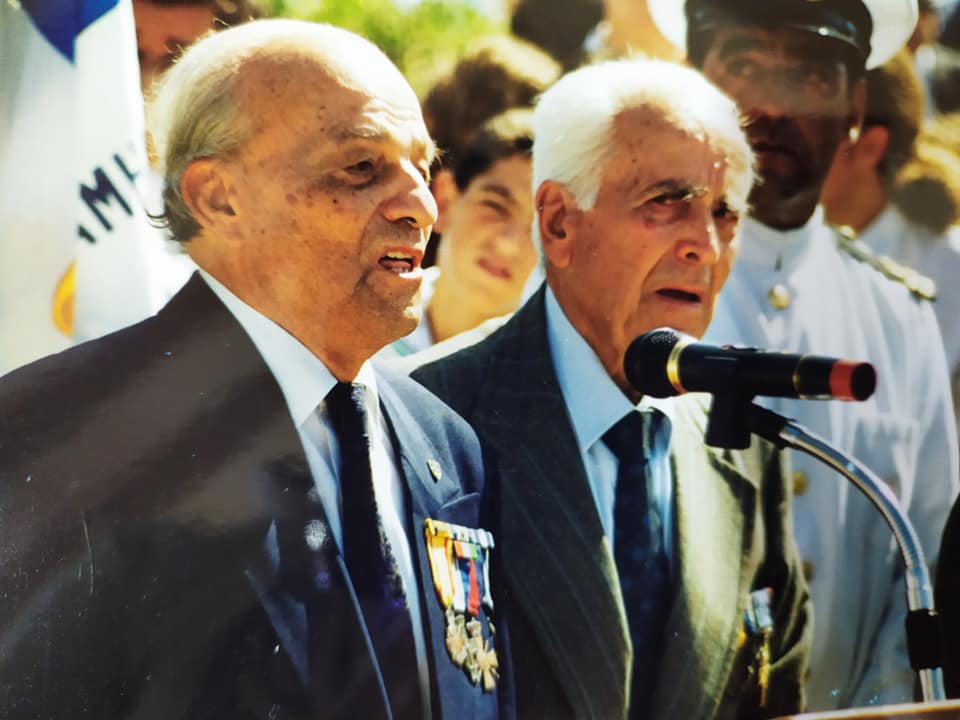
Athanasios Andrianaakis – Seaman
“Mixed memories come to mind, sometimes memories of pride and sometimes memories of sadness… The legendary destroyer “Vasilissa Olga” was at the forefront of the operations in the Mediterranean… It was the first, with the Greek flag proudly flying from its mast, to come to this bay of Leros, Lakki… It was a triumph for us, it was a reward for us that we were fighting the occupier, the Germans, all the years of the Second World War…
We had been on patrol all night in the Dodecanese islands… And we came to rest, to relax a little here and in the evening to continue the same story, the patrol… Coincidentally, we hear the service of the Athens Cathedral, Sunday morning, no one went to rest, they had hugged the radio, the small radio, to listen… And without expecting this attack, without an alarm sounding, without any warning, only the bombs that fell in this bay, from the 30 or more enemy planes, forced us to start defending ourselves. The enemy planes, in addition to the bombings, also made a vertical attack, and with their machine guns they scanned the decks, which means they decimated the crews of the anti-aircraft guns and it is a fact that they killed many children from the Olga…
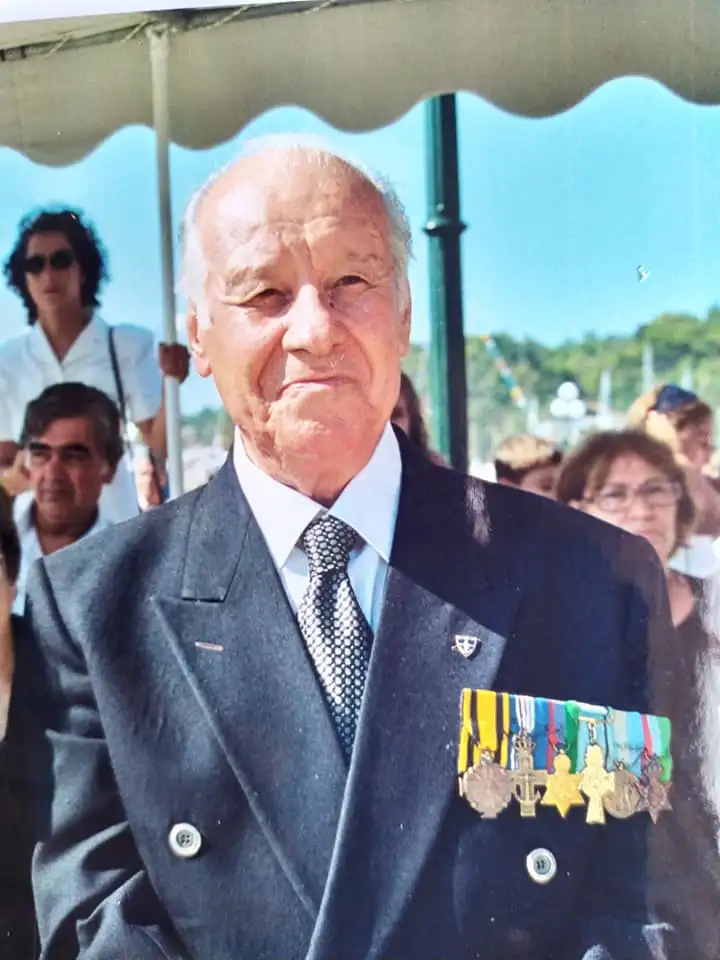
We continue with the few weapons we have.. The captain, the glorious George Blesas, with the shaking of the ship, who had gone to rest a little, as he was, because this captain never enjoyed rest peacefully, always on the bridge, days and nights… He didn’t go. That day, he went down as he was, with his clothes, to lie down for a little while to rest.. But the shaking of the ship, from the bombs that had fallen into the sea and with the experience he had, he immediately jumped up and ran from the stern, because the officers’ quarters were in the stern, and he had a to go to the bridge.. When he went out on the deck, from the left side, from where the bombing was coming, he heard a voice, from one of the crew, “Mr. Captain, we are being bombed” and he replies “Boys, it’s nothing, everyone to your stations”. And he leans on the engine gratings, to inform the First Engineer, the immortal Sakipis, to activate the engines, to sail away. But, he turned his head to see where this attack was coming from, and raising his head high, to see the planes, an enemy plane was descending, with the machine gun, for the scan that as I told you they were doing on the decks and unfortunately, for this hero, the burst found him and hit him in the neck and chest.. He fell instantly dead.. That was the “Olga”.. This warship is now in its watery grave, here in this quiet bay. Every year I come to see, to talk to my hero friends – comrades about the dead, because if we forget the dead, they die…
Vasilios Mangasianos – Seaman
“At the time of the attack, I was down here, like these portholes here, the second ones, down below (pointing at the model of the ship in the Naval Museum of Athens). The planes started with their guns, their machine guns, everything they had, and they raked the whole ship. And the first bullet hit the captain, killed him.
The ship, after that, started to “mumble”, it was hit, the bombs started.. While it was turning, the ship was “playing”, I found myself in the sea, swimming.. The bullets were falling like rain, like hail.. After that, I fainted..? I don’t know how it happened, I found myself in Alexandria… The only thing I remember was looking for how to be saved. My mind, my brain had… how to be saved, how to step on land. I don’t… it’s as if I had no contact, from the time the ship was hit and turned upside down, how I found myself in the sea, swimming, someone at some point pushed me, and threw me into the sea… I fall into the sea, I swam, I dived, I heard behind me the planes “vrrrrrrr”, shooting and bombing, one after the other… The captain, Blesas, was the best! He never wore a helmet, he was with a beret..
